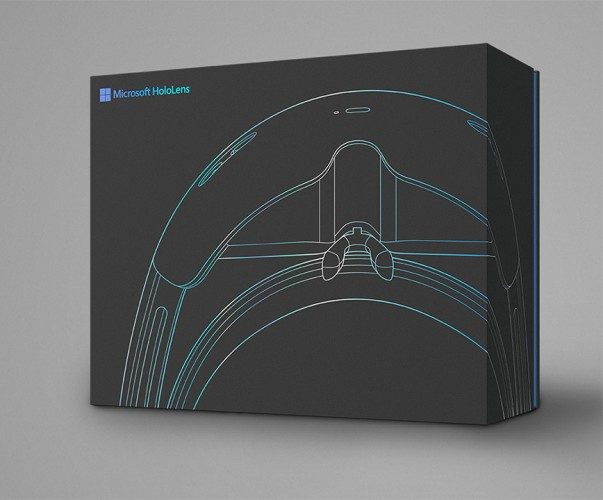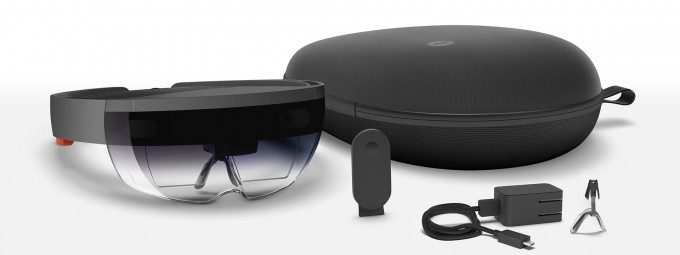Microsoft have just launched a new HoloLens ‘Commercial Suite’ which packages the augmented reality visor as ready for business with numerous new features and benefits for business buyers.
Microsoft’s augmented reality visor HoloLens has been available to developers for some time, with the development kit edition of the device originally launched in October last year, with buyers asked to lay down a cool $3000 for the privilege.
Now, Microsoft seem to be ramping up the push for adoption of its AR device and Windows Holographic API as they’ve launched what’s being called HoloLens ‘Commercial Suite’. The new package comprises a collection of pricing models and “Enterprise” software features that Microsoft think will appeal to businesses looking to stay on the cutting edge in adopting augmented reality for use in the work place. Not only that, but HoloLens will now be available for bulk purchase for the first time, although pricing for this is on request and, as with most things in business, likely negotiable dependent on order numbers.
Here’s a run down on the other features the HoloLens ‘Commercial Suite’ brings to the table:
- Kiosk mode. With HoloLens kiosk mode, you can limit which apps to run to enable demo or showcase experiences.
- Mobile Device Management (MDM) for HoloLens. Your IT department can manage multiple HoloLens devices simultaneously using solutions like Microsoft InTune. You will be able to manage settings, select apps to install and set security configurations tailored to your organization’s need.
- Identity. Azure Active Directory and next generation credentials with PIN unlock.
- Windows Update for Business. Controlled operating system updates to devices and support for long term servicing branch.
- Data security. BitLocker data encryption and secure boot is enabled on HoloLens to provide the same level of security protection as any other Windows device.
- Work access. Anyone in your organization can remotely connect to the corporate network through a virtual private network on a HoloLens. HoloLens can also access Wi-Fi networks that require credentials.
- Windows Store for Business. Your IT department can also set up an enterprise private store, containing only your company’s apps for your specific HoloLens usage. Securely distribute your enterprise software to selected group of enterprise users.
And here’s what you get in that rather fetching box:
- Microsoft HoloLens Development Edition
- Clicker
- Carrying case
- Microfiber cloth
- Charger
- Micro-USB 2.0 cable
So after a little while where it felt Microsoft’s idea of direction for it’s impressive AR hardware and operating system integration was a little woolly, it’s clear that they’re now doubling down on business and workplace placements for the technology. It’ll be fascinating to see just how successful this push will be.
Thanks to the folks over at VirtualWorld.es and WindowsPhoneApps.es for the heads up on this story.
If you’re a business looking to adopt HoloLens for projects within the workplace, let us know in the comments below or reach out to us using the contacts on this page. We’d love to hear from you.








